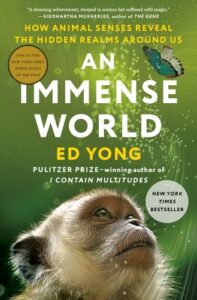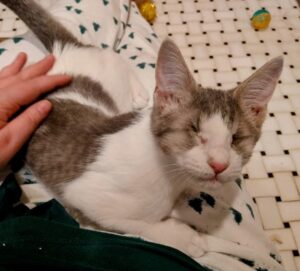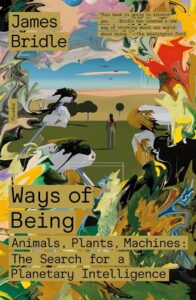How They See

Ever since I read An Immense World by Ed Yong (cover above), I’ve been obsessed with the term “Umvelt“. It’s a German word that, aside from the host of semiotically-charged terms in that Wikipedia entry, basically refers to how an organism perceives, interacts with, and navigates the world. It’s all about the senses.
We humans have five (well, a lot more than five, but we won’t get into that) sense: taste, smell, touch, vision, and hearing. With these senses we get all the information we need about the world around us in order to figure it out and what’s going on and how it affects us. Different people have different levels of access to different senses (e.g., a person who is blind or visually impaired has less access to the sense of sight), of course, so it’s impossible to say that any two humans experience the world in exactly the same way.
Animals do it differently. Dogs experience the world primarily through their nose, which is why it’s important to let dogs sniff as many things as they want when taking them on a walk. Cats are similar, though as apex predators (yeah, right, you five-pound ball of fluff trying to crawl up my leg) they also rely on their vision and hearing.
Currently, we have a foster kitten who is blind, and I’ve been watching her make her way through the world. When she’s walking around the kitten room, she uses her nose and her whiskers extensively. Sometimes she bumps her head lightly against the wall, but mostly her other senses serve her well; she can make her way around the room, bipping around obstacles she has memorized, playing with toys, and sniffing around the room to find water, food, treats, and the litter box. It’s actually rather astonishing.

But a cat’s Umvelt is different than a human’s. We don’t rely on our noses and whiskers as much as they do. So there are differences.
Further away from us evolutionarily, we get bats who use echolocation to find food (contrary to myth, apparently, bats are not blind; they can see just dandy) and explore the world. Most humans can’t do that (though some blind people have learned to “click” and experience the world around them with that sort of echolocation). Some birds are able to sense gravity differently than we do, or the magnetic fields of the earth to figure out how their migration routes.
Whales, insects, birds, bats, cats, dog, even plants all experience the world and have sensory input from it. Every organism has its own Umvelt.
In critters that have brains, that brain is usually the central processing unit of all those senses; however, that’s kind of diffuse as well. An octopus’s brain is in its head, but each arm of an octopus has its own neural processing unit, its own brain, which can process the sensory input from that one arm and respond to it while sending that information on to the rest of the organism and… Well, octopuses are amazing and confusing animals.
There is evidence that much there are sensory inputs for much larger “meta-organisms”, such as a huge fungal distribution, or a colony of social insects, or even forests; Yong does not go into these so much, so you’d have to read another book, Ways of Being by James Bridle.

Ways of Being is a much more philosophical book, and I won’t go into here because even though I finished reading it a couple of weeks ago, I still have to process it.
What does all this have to do with Christmas and the holidays? I don’t know if it has anything to do with Christmas and the holidays. I just thought it was neat.
Today I recommend the Zombies are Human series of novels by my friend Jamie Thornton. I’ve maintained for a long time that it’s impossible to do a fresh take on the zombie genre, but Jamie’s done a great job of doing just that. The series starts with book zero, Germination, and goes from there. Read, read, and keep reading. You’ll enjoy these.

Even zombies enjoy Holidailies.